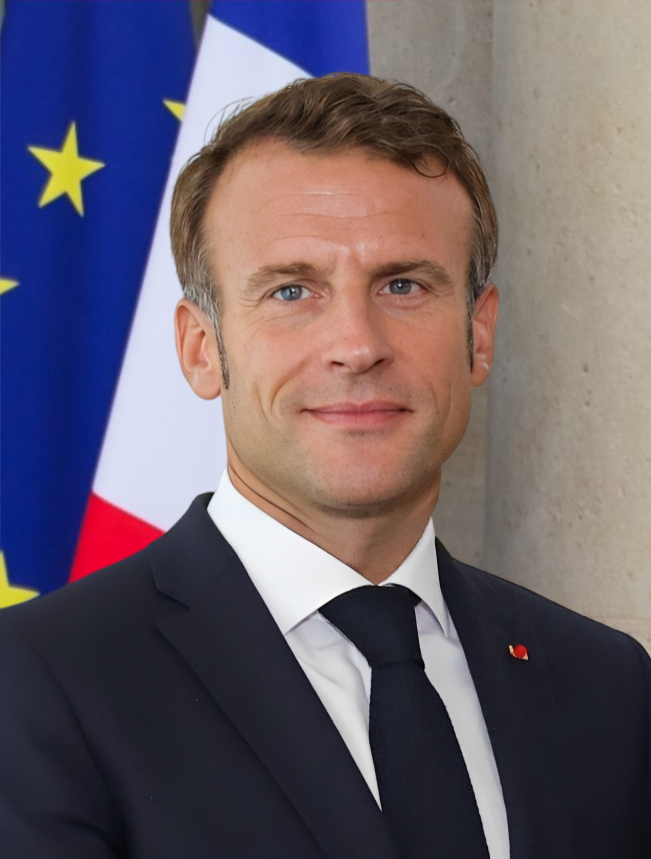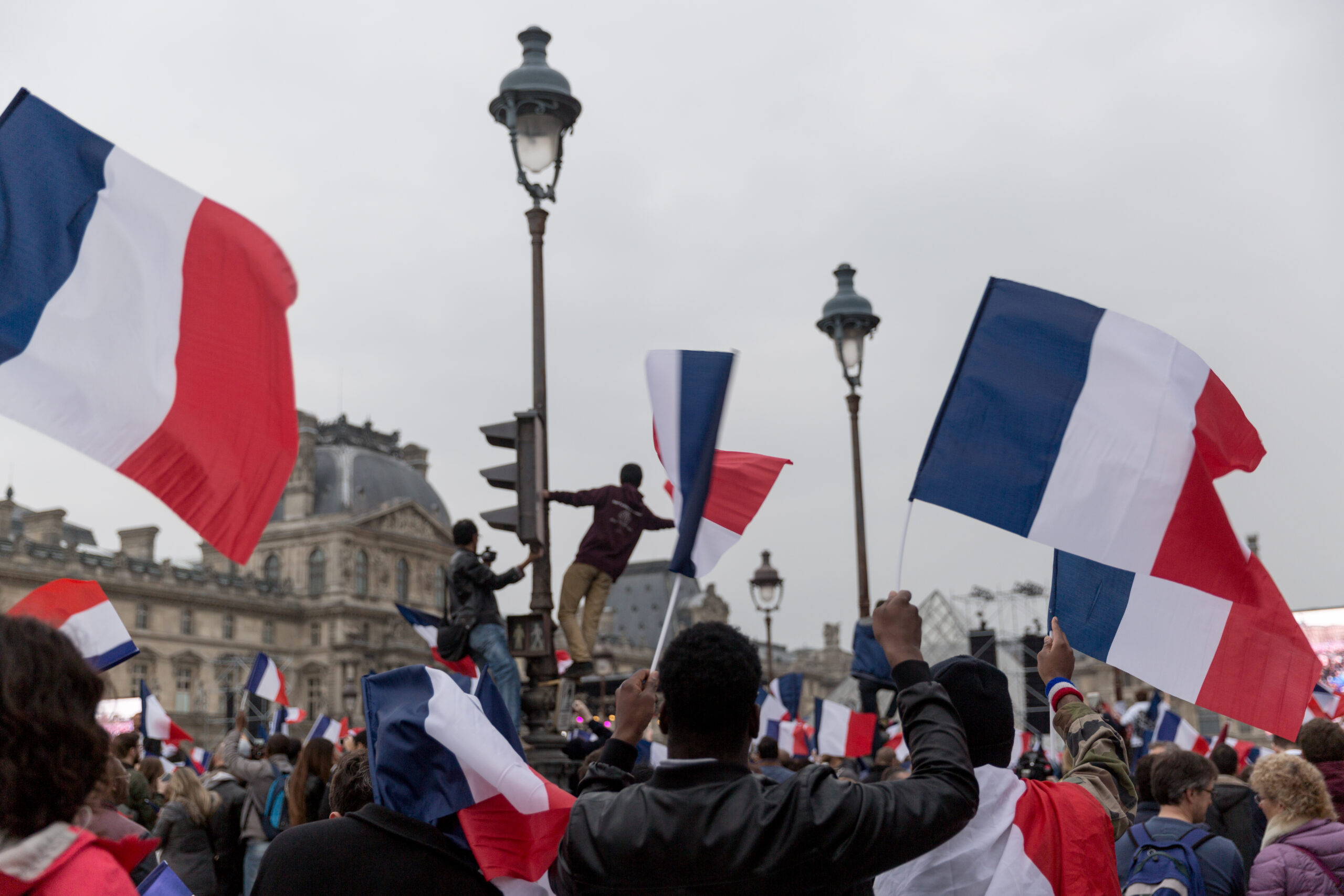Table of Contents
Background:
Emmanuel Macron, the President of France, made a bold political move by calling for a snap parliamentary election in June. A snap election is an election that happens earlier than it normally would, and Macron did this in response to a growing political challenge from the far-right National Rally (RN) party. The RN, led by Marine Le Pen, had done very well in the European elections, finishing in first place. Macron, who represents centrist (middle-ground) politics, wanted to stop the far-right from gaining more influence, so he decided to call a fresh election to seek a new mandate from the French people. His goal was to gain enough support to push back against the far-right and reaffirm his leadership.
Election Results:
The parliamentary election took place in two rounds in June and July. However, things didn’t go as Macron had hoped. The results were fragmented, with no single party getting a majority of the seats (289 seats are needed to control the parliament). The results were as follows:
- The New Popular Front (NFP), a coalition of left-wing (liberal) parties, won the most seats, securing 182 seats.
- Macron’s party, Ensemble, came second, winning 168 seats.
- The far-right National Rally (RN), which Macron had aimed to defeat, finished third with 143 seats.
- The Republican Party, a conservative group, finished fourth, winning only 46 seats.
Because no party won a majority, this created a political deadlock, where no one group could easily take control of the government.
The Left-wing Bloc’s Response:
The left-wing New Popular Front (NFP), led by Jean-Luc Mélenchon, immediately claimed that they had the right to form the next government since they won the most seats in the election. They even went so far as to nominate a candidate for Prime Minister, who would lead the government. However, the political situation remained stuck because other political groups, including Macron’s party, were opposed to the idea of a leftist government. This standoff lasted for two months.
Macron’s Surprising Decision:
After two months of this political gridlock, Emmanuel Macron made a surprising decision that shocked many people. Instead of allowing the left-wing NFP to form the government, he chose Michel Barnier, a seasoned politician from the Republican Party, to become the new Prime Minister. The Republican Party had only won 46 seats in the election, so they were not a major player. This decision was unexpected because it seemed to go against the election results, where the left-wing bloc had won the most seats.

Public Reaction and Protests:
Macron’s choice to appoint Barnier as Prime Minister angered a large portion of the French public. Many people felt that Macron was ignoring the outcome of the election and denying the NFP, which had won the most seats, the right to lead the government. This led to widespread protests across the country. Tens of thousands of people took to the streets, accusing Macron of stealing their vote and betraying the democratic process. They believed that Macron was not respecting the will of the people.
Jean-Luc Mélenchon, the leader of the NFP, was particularly outraged. He criticized Macron’s actions as a betrayal of the public’s trust. According to Mélenchon, the people had clearly chosen the left-wing bloc to lead the government, and Macron was ignoring this mandate by picking a conservative politician instead.
Macron’s Justification:
In response to the criticism, Macron explained why he made the decision to appoint Michel Barnier. He argued that his goal was to maintain “institutional stability” in France. Macron believed that allowing the left-wing NFP to form the government would create too much conflict and instability, as most other political groups were strongly opposed to the idea of a leftist government. To prevent further division in the country, he decided to appoint Barnier, a conservative politician, as a compromise.
The New Political Setup:
Under the new arrangement, Michel Barnier would lead a minority government, meaning he would not have a majority of seats in the parliament. He would rely on support from Macron’s party, Ensemble, to pass laws and govern effectively. However, Barnier would also need indirect support from the far-right National Rally (RN). This means that the RN would either have to support some of Barnier’s policies or abstain from voting on them, allowing Barnier to move forward without opposition.
This situation was ironic and controversial because Macron had originally called the election to defeat the far-right, but now his new Prime Minister would depend on the far-right for political survival.
Criticism of Macron’s Decision:
Many people saw Macron’s decision as a blow to French democracy. By calling for an early election and then appointing a conservative Prime Minister despite the left-wing bloc winning the most seats, Macron appeared to be ignoring the people’s vote. This gave the impression that he was more concerned with keeping power than respecting the will of the voters.
Critics also pointed out that by working with the far-right National Rally (RN), Macron was “mainstreaming” the far-right, making them more accepted in the political system. The RN has neo-Nazi roots, and allowing them to have influence over the government was seen as dangerous by many. Macron’s decision was viewed as a risky political gamble that could harm French democracy in the long run.
Conclusion:
In conclusion, Macron’s attempt to manage the political crisis in France has caused a lot of controversy. He called for an early election to defeat the far-right, but the election results were fragmented, and no party won a majority. After two months of political deadlock, Macron chose a conservative Prime Minister, which angered many voters who felt that he was ignoring the outcome of the election. His decision to rely on the far-right’s indirect support to keep his government functioning has raised concerns about the future of democracy in France. Many people believe that Macron made a mistake by prioritizing political stability over the will of the people.
.
.
.join our telegram channel for regular updates of The Hindu Epaper Editorial Explanation-https://t.me/Thehindueditorialexplanation
The Hindu Epaper Editorial Explanation given by Hello Student is only a supplementary reading to the original article to make things easier for the students.
In conclusion, preparing for exams in India can be a daunting task, but with the right strategies and resources, success is within reach. Remember, consistent study habits, effective time management, and a positive mindset are key to overcoming any academic challenge. Utilize the tips and techniques shared in this post to enhance your preparation and boost your confidence. Stay focused, stay motivated, and don’t forget to take care of your well-being. With dedication and perseverance, you can achieve your academic goals and pave the way for a bright future. Good luck!
The Editorial Page of The Hindu is an essential reading for all the students aspiring for UPSC, SSC, PCS, Judiciary etc or any other competitive government exams.
This may also be useful for exams like CUET UG and CUET PG, GATE, GMAT, GRE AND CAT
To read this article in Hindi –https://bhaarat.hellostudent.co.in/

